The Importance of Identity: Transgender Issues In Video Gaming
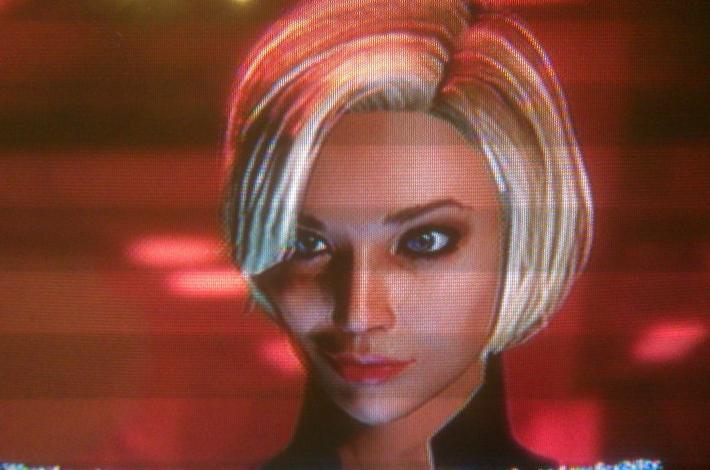
PAX EAST 2012 is planning to have a panel on Friday, April 6 called Press XY: Transgender Issues In Gaming with representatives from many organizations such as Player Affinity, Obsidian Entertainment, Interplay, CCP North America, and EGM Media. Included in that panel is Morgan McCormick who is the owner of Translabyrinth, a blog where she writes about her perspective on her life, pop culture and issues of gender. Ms. McCormick took the time to talk to Nerd Caliber about the panel, gamer attitudes toward gender and the importance of finding one’s identity.
*****
Share with us about yourself and about your website, Translabyrinth.
My name is Morgan McCormick, and I’m a redhead, a Southerner and a lesbian transsexual. I’ve done a little bit of everything, but currently I’m a recruiting specialist for a grassroots campaign office, and am also a counselor for survivors of domestic violence and sexual assault. I write, act, do public speaking and dabble in the social media arts, time allowing.
I started up my website/YouTube channel to carry on in the tradition of my trans forebearers, who took to the community of the internet to have a safe space to explore and explain who they are. I wouldn’t have a website if Andrea James hadn’t started tsroadmap, just like I wouldn’t have a YouTube channel if Erin Armstrong hadn’t started grishno. Since I have my fingers in the film community (I was a film journalist for several years), as well as anime, TV, video games, etc., I feel I can offer a unique perspective through the lens of the entertainment industry. The groups I just named allowed me have a community in my youth since society had cast such a long shadow over the LGBT community as to make it basically inaccessible. The website is my attempt to strike up a balance between my experience in my 20’s as a gay transgal versus my teens as a straight white male.
The panel is a mix between discussion group and a celebration/retrospective on what role transfolk has played in the industry. For the latter, we’ll have trans game developers and fans, as well as writers interested in trans issues and developers who understand the impact of gender selection in modern day video games. For the former, we’ll be looking into representations of trans characters in video games, and the significance of allowing players to select the gender of their character, as well as how that mixes with the growing interest in feminist and LGBT issues in the video game community, such as the increased marketing by BioWare of Mass Effect’s FemShep option.
We’ll also be talking about trans video game characters that we have a passion for, which is an important aspect of the panel since it was many of these characters that helped us to understand who we are as people. While not all trans video game characters have been thoughtfully put together, the fact is that one of the ways we grow as people is by adopting philosophies and identities from characters in film, movies, books, and media in general. So if it had not been for these characters, it might have been many more months or years before we found out more about who we really are. Besides, it’s not unfair to say that most, if not all, art forms are taking just as much time as video games to understand and properly portray trans characters.
I’ve always thought of myself as a story gamer, and while game mechanics are ceaselessly fascinating to me, I really just want a yarn to get lost in. That’s what video games were for me before transitioning: escapism. To exist in a world where I could do better and be better, as opposed to my life which felt like one long series of being denied things that I wanted just so I could make everyone else feel better about themselves. As journalist Simon Parkin said, speaking specifically of JRPGS, “You’re predestined to succeed. Just so long as you keep going. And jeez, that may be escapism or a gross oversimplification of the reality we live in, but isn’t that sense of… of justice the yearning of every human being?”
That said, it was the Legend of Zelda: Majora’s Mask, much more than its predecessor, that woke me up to the fact that the world can be both a place of great joy and great misery, which is something we all need in art. If we give our children sterile, safe, unrealistic narratives in their youth, when they suddenly hit 18 and are thrown out into the real world they won’t be prepared. After that, and Metal Gear Solid and Final Fantasy VII, I hungered more for painful stories, because they articulated how I felt while still having the faintest glimmer of hope at the end. Eternal Darkness: Sanity’s Requiem, Oddworld: Abe’s Oddysee and Exoddus, the Legacy of Kain series, or even relentlessly cynical games like Drakengard, killer7 and Silent Hill 2. I was especially drawn to series with badass guys who kept everyone at arm’s length and nursed a dark secret (Auron in FFX, Faust in Guilty Gear, Revolver Ocelot in MGS, Garcian in killer7, etc.), which is how *I* felt. Not badass, mind you, but I longed to be these guys because they were unbelievably strong, and I wanted superhuman strength to protect myself if anyone ever found out my secret, which in the end turned out to not be so shameful.
My love of well written games hasn’t diminished since, and I’ve been catching up on my backlog of games which are supposed to have well realized tales, such as Enslaved, Odin Sphere and Far Cry 2.
You mentioned before that playing video games for you allowed you to escape reality. What sort of struggles did you go through outside of video games that made you want to escape?
I’d say so, in that many of the triple AAA titles are these power fantasies revolving around characters who have complete control over their emotions and when push comes to shove never, ever back down from a fight, which is a person we all long to be but generally aren’t. As a culture we seem to long to believe in what writer Gareth Higgins called the myth of redemptive violence, i.e. when a character cleanses their souls by killing as many people as possible.
To to sum it up with a swiped Neal Stephenson quote “Until a man is twenty-five, he still thinks, every so often, that under the right circumstances he could be the baddest motherfucker in the world. If I moved to a martial-arts monastery in China and studied real hard for ten years. If my family was wiped out by Colombian drug dealers and I swore myself revenge. If I got a fatal disease, had one year to live, and devoted it to wiping out street crime. If I just dropped out and devoted my life to being bad.”
I’m not saying it’s bad to have these games, but since we live in uncertain times (and always will), we long for a version of history where we are cast as the best damn sniper that ever sniped a snipe. And if all that seems very tangential, allow me to tie it back: I bought Star Wars Knights of the Old Republic I and II so I could play as a woman. A strong woman with untold Force powers at her command, and not who I was: a scared kid who thought that she was one confession away from being lynched. For another example, look at the blonde FemShep controversy (http://www.pcgamer.com/2011/07/27/mass-effect-3-death-to-blonde-shepard/) where a group of people felt that simply because Shepard was blonde that that made her dumb, vapid and forgettable, even though the blonde Shepard is exactly the same as the rest of the Shepard in terms of personality. People are very obsessed with the surface of things, avatars, so much so that they can view a dye job as a personality 180.
Or take the Snake/Raiden controversy in Metal Gear Solid 2. Snake is just as moody and whiny in MGS1 as Raiden is in MGS2, but Snake is noticeably muscular, has a beard and talks in a deep voice, and Raiden does not. We still have very deeply entrenched norms that both sides of the gender divide struggle with, because, truly, what is the “right” way to define a woman or a man? I think the scary thing is that there may be no firm answer and because there isn’t, we try and come up with whatever we feel is the most general gender banner we can gather behind and hope few people get pissed off as possible.
I took some time away from video games for a couple years at the beginning of my transition after reading a topic on a very popular video game forum where numerous users, backed by the awesome power of anonymity, celebrated the murder of a trans woman, for pages and pages. They stripped away her status as a human being much as violence had stripped away her life, and I couldn’t handle it. At a candle light vigil that year I read her name aloud and I wondered then if I would ever return to this community.
Years on I came back and I found The Border House, Critical Distance, Nightmare Mode, Medium Difficulty and a slew of other sites and writers searching for meaning in video games in a way that I had never seen on such a scale before. The journalist community, every week, seems to make feminism and LGBT rights more and more of a priority without sacrificing the purpose and direction of their publication (as in, focusing on an issue to the point of dishonest pandering). Are there users, seemingly infinite in number, who think that being gay is being political and being feminist is being oversensitive? No doubt, but nothing built on a bed rock of hate can stand forever. You can’t make a sound, logical argument for why one group of people deserves less representation than another, and as people begin to realize that, something like being transgender will probably be boring by the time I have kids, or their kids have kids. It’s not long now before the world grows up and realizes you can’t legislate an active and vocal minority into obscurity.
Like all art save a single author novel (and even then you have to consider the 1-3 editors that took a swing at it before publication, to say nothing of the author’s friends), art is a collaborative effort pieced together bit by arduous bit over time, and even a George Lucas film has more than one set of fingerprints on it, so I’m reluctant to point to most any thing and say “This was a unilaterally bad thing.” (Unless that thing was Custer’s Revenge.)
That said, slipping up on sex and gender is something very easy to do simply because mainstream things are often a study of the tastes and interests of mainstream culture, and very few people list their major interests like: Romantic Comedies, FPSs and Equal Treatment for All My Peeps. But I’d say that a game with a poor idea of sex and gender isn’t the first game that stars a man built like a tank and had a mountain of sex, and a woman who could fall through a crack in the floor if her balloon boobs didn’t stop her part way down. I’d say it’s the 20th nigh on exact duplicate of that first game. This is why we need games like BioShock, which at first appear to be about another Gordon Freeman-esque nonentity and then part way through the player is punished for taking up such an assumption, and is told that it’s not just the character that is the tool, it’s you. Then your fight becomes about promoting yourself out of tool status with a body ladder piled sea level high.
A good opening litmus is whether or not a game passes the Bechdel Test, which I’m sad to say that many of my favorite games growing up don’t. It doesn’t make them bad games, it just means that they (hopefully unintentionally) played into a vision of the world where 50% of its population doesn’t exist, or is otherwise subservient to the needs of the other 50%. Also, give a gal a gun (and a chip on her shoulder) the size of the rock of Gibraltar and she’ll be “strong,” but a strong female character or a strong male character have to be meaningfully and believably flawed or their decisions are weightless. A gun is a poor substitute for a personality.
There is a sad history of games that portray trans people (be they transsexuals, crossdressers, and so on) as crazed sexual deviants, sex workers or simply playing them for laughs, which I have a problem with. Dragon Age I and II, Deus Ex: Human Revolution, GTA: Vice City Stories and Liberty City Stories and Persona 3 all have characters like these whose sole purpose seems to be “tricking” the character into having sex with them, or just being weird for weird’s sake. Honestly, based on these games you’d think I spent all my day plotting how to screw everything that moves, which is silly when you factor in three meals a day and sleep. : )
I would like to say that I don’t think the developers, publishers or anyone involved with the production were demonstrating any malice whatsoever in their portrayal of trans characters, and that those characters were not intended to be a role model of a group of people. But no one gets to decide whether they or their work become a role model, it just happens. And in an industry with few trans portrayals, what portrayals there are all become representative.
I don’t want to give the impression I’m indicting any game or developer or individual or group of any kind, I just wanted to demonstrate how problematic handling these issues can become. I’ve been slowly re-entering this industry and I would never want to give anyone the impression I’m childishly picking fights.
When it comes to design philosophies, functionality, art and design, I’d say that it is near impossible to open yourself up constantly to the opining opinions of a million bleating lambs all telling you how you could do it better. But when it comes to the script’s handling of a minority, it wouldn’t hurt to open up a forum topic on your company site and ask. Or better yet, just read the many dozens of sites that have sprung up to answer these sorts of questions. It really doesn’t take a human being, a functioning computer and high speed internet access that long to unearth results on “transgender video games” or “feminism video games.” Is it hard to make sense of it all at first? Yes, but the long tail of the time investment is there, and no one wants to be incessantly cited down the line as that game that did everything wrong. You never know what story is going to be the one picked up by every major news outlet, and I think gamers in general don’t want to become the kind of people we’re frequently portrayed as.



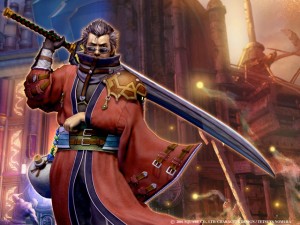
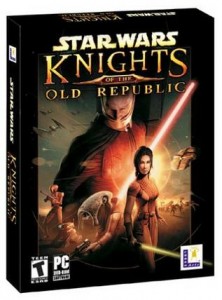

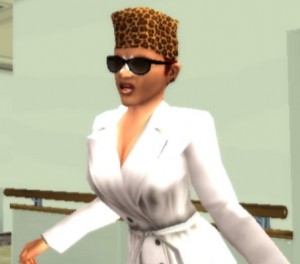
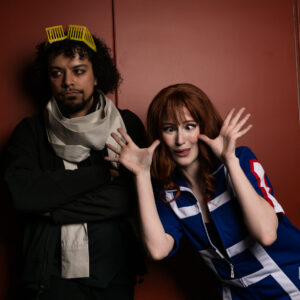
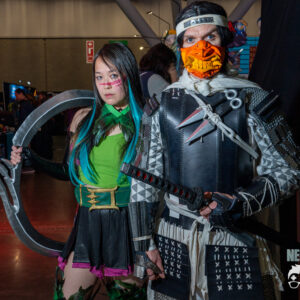
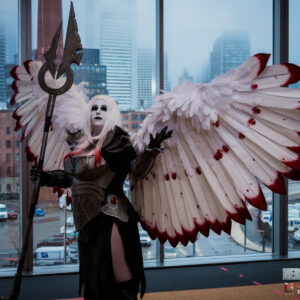
1 thought on “The Importance of Identity: Transgender Issues In Video Gaming”